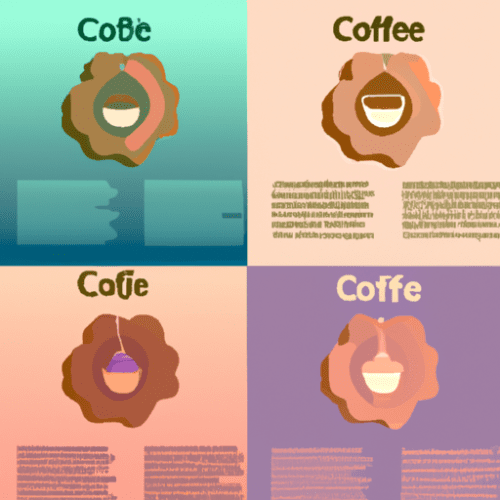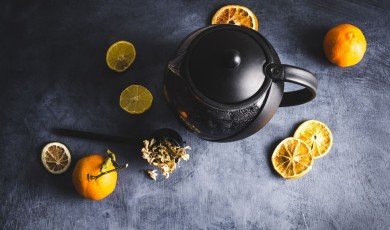
Coffee is more than a beverage—it’s a culture, a passion, and an ever-evolving business. From the robust espresso bars of Rome to the tranquil tea houses in Kyoto, the coffee and tea industry has seen a remarkable transformation over the years, emerging as a global phenomenon. With this worldwide appeal comes the exciting challenge of reaching new markets and connecting with a diverse clientele. For cafes and coffee houses branching out internationally, the importance of language and clear communication is paramount. If you own or manage a coffee business, making sure your menus, promotions, and communications are not only accurate but culturally relevant is essential for success. This is where working with a professional translation agency can make all the difference.
In this blog post, we’ll explore why high-quality translation is crucial for coffee businesses, discuss some of the latest innovations in the coffee world, and highlight how online certified translation services can help your business thrive across linguistic borders.
The Global Coffee Culture and the Need for Precision
The world’s love affair with coffee and tea has driven the industry’s rapid globalization. According to recent market reports, the global coffee market is projected to reach $155.64 billion by 2026, fueled by increasing demand in Asia, the Middle East, and Africa. This growth is not limited to coffee consumption; it also encompasses coffee accessories, brewing gear, and innovative drinks combining coffee and tea flavors. For brands aiming to attract a global audience, the first step is ensuring your menu and promotional content are perfectly tailored for each market you enter.
Menus, in particular, serve as the face of a café. A compelling menu does not just list drinks and snacks; it tells a story—about origins, ingredients, and brewing methods. Imagine offering single-origin Sumatran pour-over, or a matcha-infused latte—both exciting, yet both potentially confusing if the translations are inaccurate or awkward. Menus riddled with errors or literal translations can turn away curious customers, and even worse, misrepresentation of allergens or ingredients can lead to health risks. This can be avoided by working with experts from a trusted translation agency.
Coffee and Tea Innovations: Getting the Details Right
Recent years have seen an explosion of creativity in the coffee and tea space. From cold brews to nitro coffees, third-wave coffee philosophy, cascara-infused teas, and zero-waste coffee shops, innovations are everywhere. Many coffee houses are adopting digital menus, introducing specialty brewing methods, and engaging customers with creative flavors such as turmeric lattes, mushroom coffee, or jasmine tea macchiatos.
- Specialty Coffee Drinks: International phrases such as “flat white,” “affogato,” or “café bombón” often appear untranslated on menus. Providing a brief yet culturally appropriate description is crucial so customers know what to expect.
- Allergen & Dietary Information: In a world increasingly focused on health, allergens or dietary icons must be accurately translated. Vegan, gluten-free, dairy alternatives, or sugar-free offerings are welcomed across the globe, but only if described clearly.
- Brewing Methods: Whether you’re offering V60 pour-over, siphon brewing, or Turkish-style coffee, clear and concise menu translations help set customer expectations and enhance appreciation for the craft.
As specialty coffee continues to evolve, the vocabulary and jargon have become more complex—demanding linguistic expertise and industry savvy from translators. Consulting an agency that provides online certified translation services ensures that terminology, flavor descriptions, and cultural nuances come across flawlessly, making your innovation accessible to a wider audience.
The Risks of Poor Translation: Lost in (Mis)Translation
The Internet is full of stories about translation fails—funny menus, confusing offers, or embarrassing product descriptions. However, in the coffee business, poor translation can have real consequences:
- Loss of Brand Credibility: Low-quality, machine-generated translations can undermine your professionalism.
- Health and Safety Risks: Mistranslated allergen or ingredient information can put your customers at risk, leading to potential legal liabilities.
- Missed Marketing Opportunities: Cultural references or clever puns in promotions don’t always translate literally. Without localization expertise, you could miss the chance to connect with your audience.
That’s why it’s crucial to collaborate with a reputable translation agency experienced in the food and beverage industry. These agencies employ translators who understand not just languages, but also gastronomy, ingredients, and hospitality culture.
How Professional Translation Elevates Your Coffee Business
A professional translation agency brings more than just linguistic precision to your project. Here’s how their expertise benefits your brand:
- Consistency Across Platforms: Whether you have printed menus, digital displays, loyalty apps, or social media campaigns, consistent language strengthens your brand identity.
- Cultural Sensitivity: Skilled translators localize content, taking into account regional preferences, idioms, and etiquette—making each menu or campaign resonate with local customers.
- Regulatory Compliance: Many countries require food labels and allergen information in official languages. Certified translations ensure you remain compliant and avoid fines.
- SEO and Digital Discoverability: As many consumers turn to apps and online platforms to search for nearby coffee shops or trending flavors, professionally translated web copy and meta descriptions boost your online visibility.
- Faster Market Entry: High-quality translation reduces friction when entering new markets, helping you connect with distributors, partners, and customers quickly.
Choosing the Right Translation Partner
Not all translation solutions are created equal. While automated translation tools can be tempting for speed or cost, they lack industry insight and often miss cultural context.
When selecting a partner, look for agencies with:
- Experience in food and beverage or hospitality translation
- Native-speaking translators familiar with local terminology
- Access to online certified translation services for regulatory needs
- Positive testimonials and a transparent workflow
Community-driven platforms like Reddit, Quora are also great places to research real-world experiences, get recommendations, and learn from the global community of café owners and language professionals.
Conclusion
The world of coffee and tea is vast, dynamic, and filled with opportunity. For coffee shops, roasteries, and tea houses aiming to grow internationally, professional translation of menus, promotions, and customer communications isn’t just a luxury—it’s a necessity. By trusting a reliable translation agency and leveraging online certified translation services, you can offer a welcoming experience to every customer who walks through your doors or visits your website, no matter where they come from.
Ready to take your coffee business global? Start your linguistic journey with an expert team that shares your passion for quality and culture. The perfect translation is as crucial as the perfect cup—get both right, and your customers will keep coming back for more. Related article: Why Partnering with a Translation Agency Ensures Quality Across Languages








